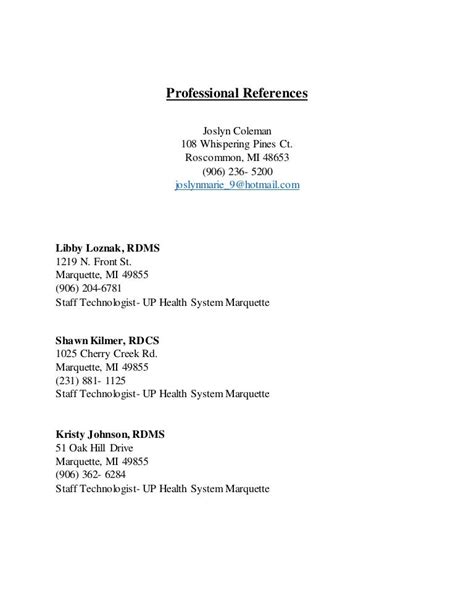What Is A Professional Reference?

When you’re applying for a job, you’ll often be asked to provide a list of professional references. But what exactly is a professional reference, and why is it important? In this article, we’ll explore the ins and outs of professional references and provide you with tips on how to choose the best references for your job search.
What Are Professional References?
A professional reference is someone who can vouch for your skills, character, and work ethic. Typically, professional references are people you’ve worked with in the past, such as former supervisors, colleagues, or clients. Employers use professional references to get a sense of your job performance and to verify the information you’ve provided on your resume or job application.
Why Are Professional References Important?
Professional references are an important part of the job application process because they provide potential employers with a more complete picture of who you are as a candidate. While your resume and cover letter can give employers a sense of your qualifications and experience, professional references can provide additional insight into your work style, personality, and overall fit for the role you’re applying for.
How to Choose the Right Professional References
Choosing the right professional references can be a critical part of landing your dream job. Here are some tips to help you select the best references:
- Choose people who know your work well: Ideally, your professional references should be people who have worked with you directly and can speak to your skills and accomplishments.
- Choose people who will give you a positive review: While it’s important to choose references who can provide an honest assessment of your work, you also want to make sure that they will speak positively about you to potential employers.
- Choose people who are reliable: Make sure that your professional references are people who can be trusted to respond to requests for information in a timely manner.
- Choose people who are relevant to the job you’re applying for: If possible, choose references who have experience in the same industry or field as the job you’re applying for.
- Ask for permission: Before you list someone as a professional reference, make sure to ask for their permission first. Not only is this common courtesy, but it can also help ensure that your references are prepared to speak on your behalf.
How to Ask Someone to Be Your Professional Reference
Once you’ve identified potential professional references, it’s important to ask for their permission before listing them on your job application. Here are some tips to help you ask someone to be your professional reference:
- Be courteous and respectful: Remember that your potential reference is doing you a favor by agreeing to vouch for your skills and experience.
- Explain why you’re asking: Let your potential reference know why you’re asking them to be your reference, and provide some context about the job you’re applying for.
- Provide relevant information: Give your potential reference any relevant information they might need, such as a copy of your resume or a job description for the role you’re applying for.
- Thank them for their time: Regardless of whether or not your potential reference agrees to vouch for you, make sure to thank them for their time and consideration.
Conclusion
Professional references can be an important part of your job search. By choosing the right references and asking for their permission in a courteous and respectful manner, you can help ensure that you present yourself in the best possible light to potential employers.
FAQs
What should I do if I don’t have any professional references?
If you’re just starting out in your career or haven’t worked with anyone who can serve as a professional reference, consider asking a former professor, mentor, or volunteer supervisor who can speak to your skills and work ethic.
How many professional references should I provide?
This can vary depending on the employer, but it’s generally a good idea to provide three to five professional references.
Can I use personal references instead of professional references?
While personal references can be helpful in some cases, it’s generally best to stick with professional references who can speak specifically to your job performance and work experience.
What if my potential reference doesn’t respond to my request?
If you don’t hear back from a potential reference after reaching out to them, it’s okay to follow up once or twice. However, if they still don’t respond, it’s best to move on and find someone else who can serve as a reference for you.
